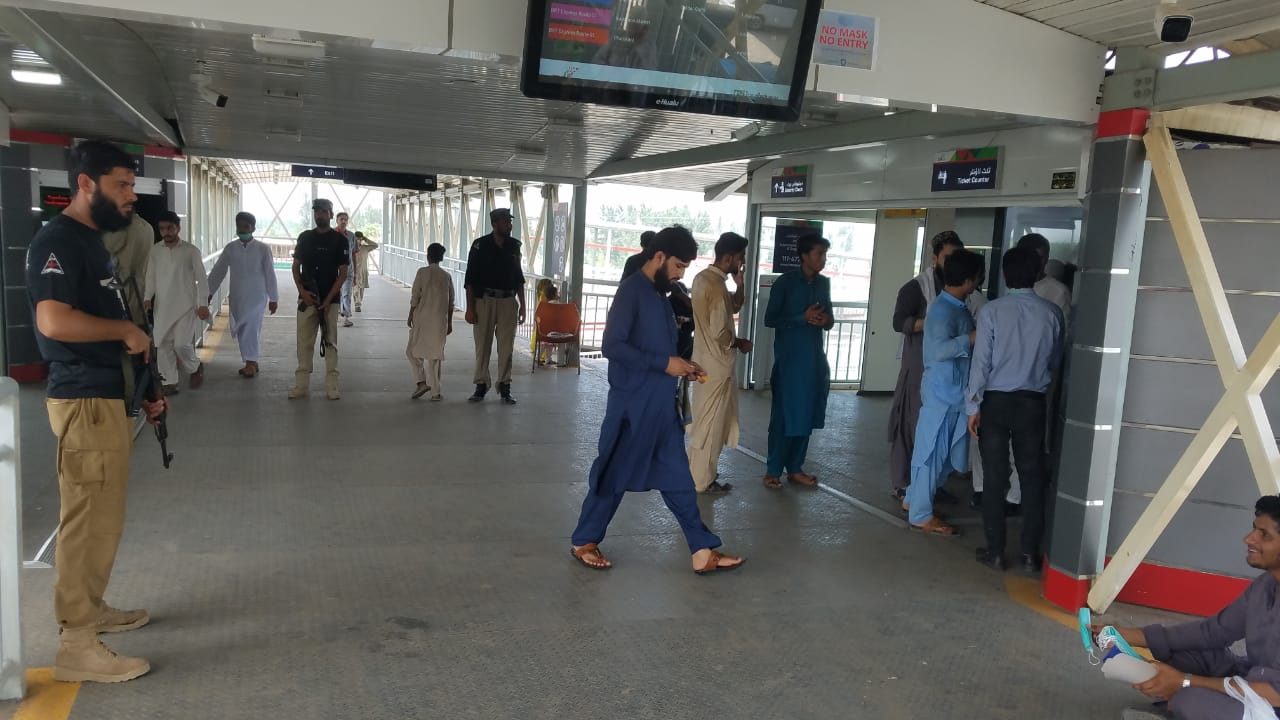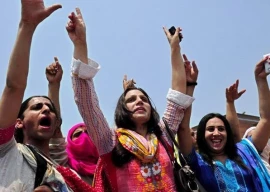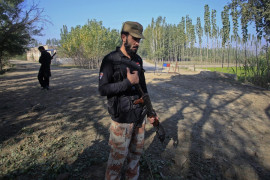
The Bus Rapid Transit (BRT) project in Khyber Pakhtunkhwa has been a blessing for commuters since it first opened its doors. However, for any public transport service to work efficiently, its passengers must follow certain protocols.
Unfortunately, authorities have not been able to implement orderly boarding at the many stops that dot the 27-kilometer-long route between Chamkani and Karkhano, besides the recently inaugurated Kohat Road and Hayatabad feeder routes. Neither have they been able to control the number of passengers who abandon the coronavirus-related safety protocols after boarding.
The high volume of passengers, some say, makes it impossible to maintain the queues. And many TransPeshawar employees appear to be struggling with the issue.
However, at the Dabgai station, the situation is slightly different. TransPeshawar’s only Sikh employee takes the responsibility to ensure some order before passengers board and disembark.
Not an easy task by any measure, but that doesn’t discourage Sardar Aajeet Singh Lal from doing his job. Lal, who works at one of the busiest stops, ensures that he pursues most passengers who are out of line at Gate-2.
“Yes, it is difficult, but I hope you will find a smart queue here,” said Lal, pointing at what he calls ‘his post at Gate-2’. With the newly inaugurated BRT being so popular among commuters for its convenience and comfort, he said, almost every passenger is in a rush to grab the first seat.
“Forming queues wouldn’t have been my responsibility had passengers realized the importance of it,” said Lal, referring to similar transportation services in other parts of the world. According to an estimate by the Asian Development Bank (ADB), only 40% of Peshawar’s residents had access to some form of public transport before the BRT was inaugurated. The BRT, through its fleet of low-emission, electric-hybrid buses has expanded that service to millions across the city.
Covid-19 SOPS
Another challenge for the BRT is the coronavirus pandemic. One passenger pointed out that the standard protection protocols are not being followed. Despite repeated awareness campaigns, he said, a significant number of passengers are seen without face masks on the bus.
Even while the government’s dedicated Covid-19 portal urges residents to follow safety protocols to prevent the spread of the respiratory disease, commuters on the bus appear to be violating the rule.
When asked the TransPakistan spokesperson said the management takes such issues seriously. “Wearing a face mask and following social distancing rules protect (passengers) against Covid-19. If passengers remove the face mask during the journey that is a serious concern,” said Muhammad Umair Khan, TransPeshawar’s spokesperson.
“We don’t let anyone enter the station without a mask. But passengers have been taking their masks off on the bus.” Khan cautioned that violators will be penalized heavily.
According to the ADB, more than 8 million people have used the BRT since it opened. In its report, the Manila-based lender said, the BRT ridership has reached 145,000 trips per day. And once the remaining 40% of the bus fleet is operational, more than 300,000 passengers are expected to benefit from the system every day.
Published in The Express Tribune, February 15th, 2021.
















COMMENTS
Comments are moderated and generally will be posted if they are on-topic and not abusive.
For more information, please see our Comments FAQ